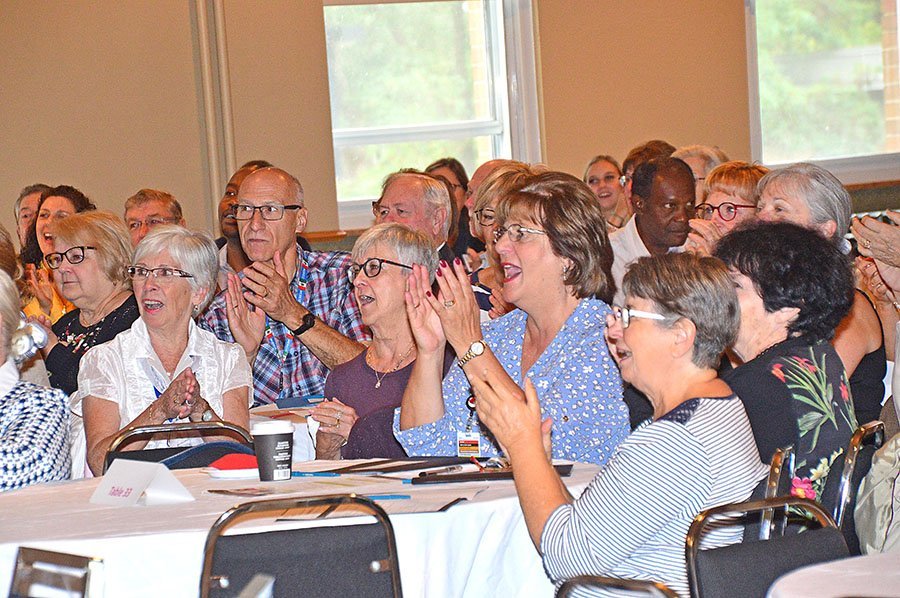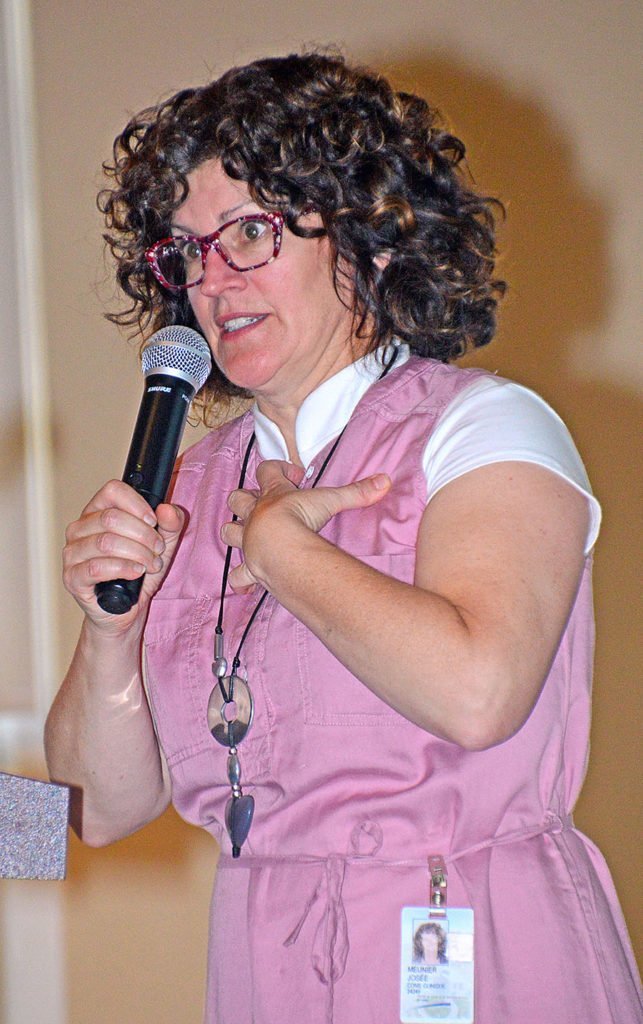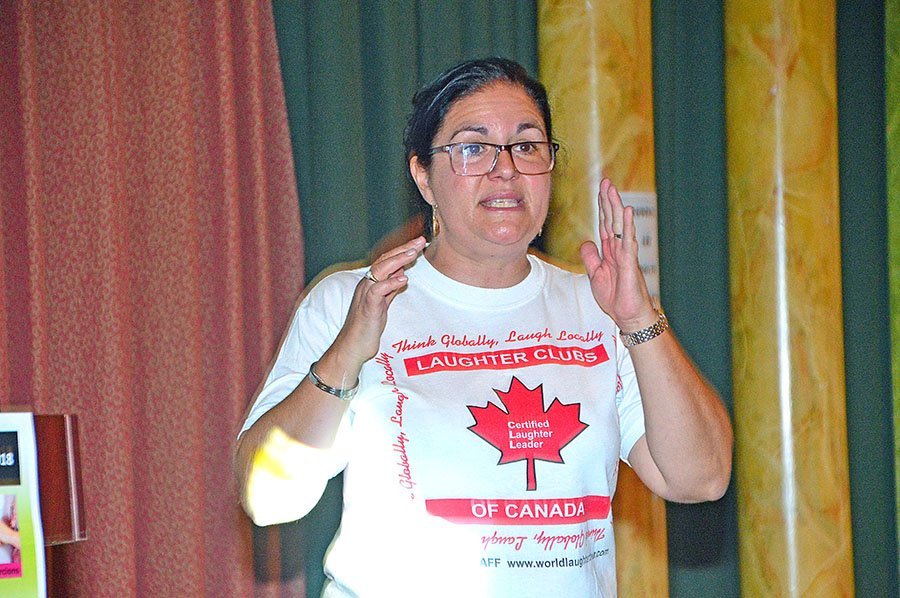
Martin C. Barry
If laughter is the “best medicine,” as an old bit of folk wisdom maintains, then a group of volunteers from health and social services establishments in Laval got a good dose of it on Sept. 20 when the Centre intégré de santé et de services sociaux (CISSS) de Laval held an event where the volunteers had a chance to upgrade the knowledge and learning for their tasks.
Laughter as medicine
During one of the morning sessions given at the Centre for the protection of children and youth on Cartier Blvd. West, Isabella Bitetto, who is responsible for volunteers and leisure activities at the Jewish Rehabilitation Hospital and who is also certified in laughter specialist, led a presentation in the importance of laughing.
Bitetto gave the session participants a taste of the training she received from the World Laughter Tour, an organization with local chapters which, according to their website, are part of a “worldwide movement for health, happiness and peace by encouraging everyone to tap into the positive benefits of laughter and humor.” Bitetto took part in a laughter workshop in Montreal in 2009.

Some serious laughter
“The importance of laughing is very serious,” she said without any intentional irony. “Children don’t question and they do it with all their hearts. We the adults we control ourselves because it isn’t always appropriate. But laughing from the heart is a universal language which is understood the world over for the message it expresses: joy, peace and enjoyment.”
Bitetto led the group through a number of physical laughter exercises. While some may have found them a little silly at first, before long it was obvious the mood in the room had grown lighter and that everyone – including yours truly – was more relaxed.
Bitetto’s session prepared the group for the workshop that immediately followed hers, which was on a far more serious topic: how to deal with patients or health and social service clients who are agitated or who are being aggressive.

Dealing with aggression
Josée Meunier, a clinical councillor at the CISSS’s multidisciplinary services department, provided some very valuable tips on recognizing when people are very upset and how to deal with such incidents in the most appropriate manner.
Meunier is a certified Omega trainer, specialized in maximizing the security of employees working in health and social service establishments against any type of aggression they might be exposed to. She summed up four days of information provided during the training in on hour.
“I feel certain that many among you since you have been volunteers have had to face situations involving aggressive behaviour,” she told her audience. And indeed a show of hands revealed that the majority of the volunteers knew exactly what she was talking about.
‘Understanding’ is key
A key message in her talk was that health and social service workers and volunteers should make efforts to try to understand exactly why clients or service users are angry. Among other things, she said body language can also be very important when dealing with tense situations and that workers or volunteers should learn to position themselves in potentially non-threatening ways when facing the unknown.
As well, she said that keeping a measured distance physically from clientele can also be useful as this is less likely to heighten the level of tension when such is the case. As such, she suggested not standing too close to patients or clients so that they don’t feel overwhelmed or don’t end up making the worker or volunteer feel physically overwhelmed.
Meunier noted that some volunteers have been known to resign after being involved in verbal or even physical confrontations with patients or clients because they were so upset afterwards. She suggested that even volunteers need to be prepared for this sort of thing as aggressiveness by some patients and clients has unfortunately become part of life in health and social service establishments.














